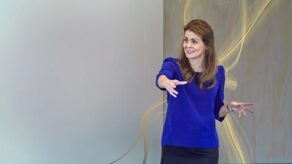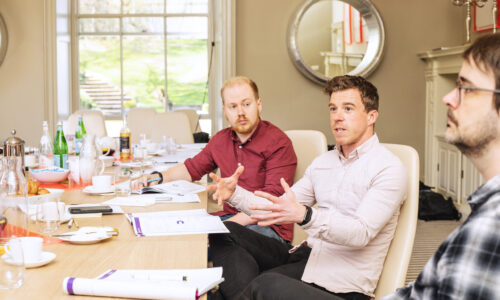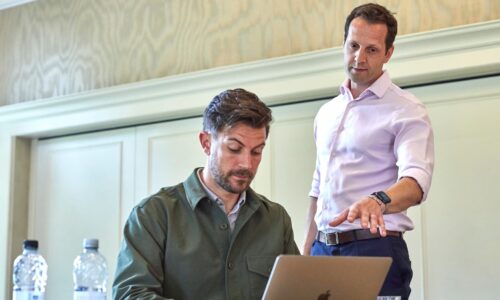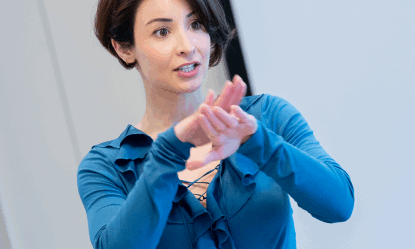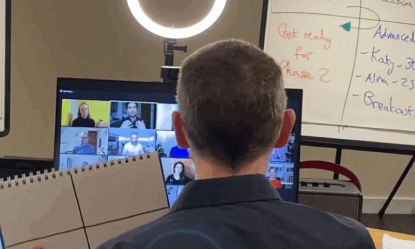The new year is a time for reflection. It’s when many of us pause to take stock of where we’ve been and where we want to go. January often feels like a clean slate, making it the perfect time for resolutions and renewed commitments. Time for a fresh start.
Whether it’s signing up for a gym membership, committing to a new hobby, or resolving to be more intentional in our relationships, January seems to be the month where everything feels possible.
But why does January hold so much sway over our motivation to start afresh? And why does it seem easier to start a healthier regime on a Monday rather than on a Wednesday? Why start a big project first thing in the morning, rather than at 3.45 in the afternoon?
The answer lies in a psychological phenomenon known as the fresh start effect.
What is the Fresh Start Effect?
The fresh start effect describes our natural inclination to feel more motivated and capable of change at specific moments in time. Katy Milkman, a professor at the Wharton School and author of ‘How to Change’, found that people are more likely to pursue their goals after what she calls “temporal landmarks.”
A temporal landmark is a significant moment in time that helps us to separate the past from the future. It’s like a psychological ‘reset button’ which gives us a sense of a fresh start.
You could think of a temporal landmark as being like a dividing line between your past and future self. This imaginary dividing line helps you to distance yourself from previous failure and approach your goals with renewed optimism.
The Power of Temporal Landmarks
Temporal landmarks are key to understanding why fresh starts feel so motivating. These moments create a natural pause, prompting reflection and a re-evaluation of our goals.
There are two types of temporal landmarks:
- Major landmarks, like a new year or a significant life event, which provide a clear sense of starting over.
- Minor landmarks, like Mondays or the first of the month, offer smaller but still effective opportunities to reset.
These markers help us break free from our current daily life and imagine a better future. They make it easier to let go of past mistakes and embrace the idea of a fresh start. When you decide, “This Monday, I’ll finally begin that project,” you’re leveraging a temporal landmark to reframe your mindset and increase your motivation.
Temporal Discounting
A psychological concept that sits alongside the fresh start effect is an idea called ‘temporal discounting’. This means that we’re happier to commit to things in the future rather than the present. Effectively, the effort required today feels larger than what we imagine the effort in the future to be.
In essence, we find it easier to commit to things in the future rather than the present.
Temporal discounting makes us believe that the future version of ourselves (or our schedule) will be less busy, we’ll be more prepared, more capable and more motivated to handle the task.
How to use the Fresh Start Effect in Business
As well as helping us in our personal growth, the fresh start effect and temporal discounting can be powerful tools for persuasion in business. Here are some things you can think about to leverage these psychological effects in your business communications:
- Timing Matters:
When asking for buy-in on a new initiative or encouraging a team to embrace change, choose your timing wisely. Find a natural temporal landmark to encourage the fresh start. For example, you could present your idea at the start of a quarter or right after a company meeting. These moments of natural transition create more of an openness to new ideas.
- Frame Your Message Around a Fresh Start:
When persuading someone, emphasize the idea of a new beginning. Phrases like “This is the perfect time to…” or “As we start this new chapter…” tap into the psychological appeal of starting fresh. - Build in temporal discounts:
You may find it easier to persuade someone to change or put in significant effort if the task required is in the future. Remember that people are more inclined to agree to something if the effort that they need put in comes a little bit later. - Leverage Personal Milestones: If you’re mentoring or coaching someone, tie your advice to their own temporal landmarks. For instance, suggest setting goals after their birthday or encourage them to reflect on their progress at the start of a new job. These moments feel significant and inspire action.
- Create Opportunities for Fresh Starts:
In business, you can create artificial fresh starts to motivate teams or clients. Launch new initiatives on meaningful dates or organize events that signal a clean slate, like a “reset day” for brainstorming or a mid-year strategy session.
Timing and mindset are deeply intertwined
The fresh start effect reminds us that timing and mindset are deeply intertwined. By understanding how temporal landmarks influence our motivation, we can better harness their power—not only for our own personal growth but also to inspire and persuade others. So, whether it’s January 1st, your next team meeting or simply Monday morning, seize the opportunity to start fresh and make meaningful progress toward your goals.




